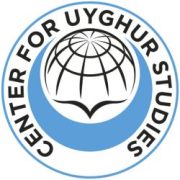Banning Muslim Uyghurs from praying, is just one of the steps in China to curb Muslim worship. As stated in the news of Radio Free Asia, Muslims are not allowed to fulfill the requirements of their faith, especially in East Turkestan. Here, the main argument of the Communist regime, as discussed earlier, is the excuse that worship disrupts public order. However, the oppression of Muslims is seen everywhere, not in East Turkistan. For example, in Yunnan, where Hui Muslims were the majority and where the oldest traces of Islam in China were once located, the management of Minzu University removed “halal menus” in student canteens, especially du- ring Ramadan, to prevent the preparation of meals for suhoor. The university administration has gone a step further and banned teachers and students from covering their heads.
In China, the Muslim community is now aware that they cannot easily perform their daily worship. One of the breaking points for them was the publication of images showing the shattering of the golden dome of the mosque in Gazhuang City on social media. In an article written by Gerry Shin and published in the Washington Post newspaper, it was stated that traditional clothes bearing the sign of Islam will no longer be featured on television channels in China. In this cultural revolution, practices such as the prohibition of the Quran and the imprisonment of those who sell the framed versions of the Prophet’s hadiths are at the door. Communist propaganda slogans are now everywhere, not in state institutions but also in mosques, which are regarded as a “public space”. The central government almost says to the Muslims there, ‘you shall worship me before Allah.’ Under the new rules, party members were prohibited from going on pilgrimage, even if they were members of the Hui community. Public employees should never go to places of worship, even businessmen should take off their caps when meeting with government officials. A victim who met with Shin expressed the following concerns: “We are afraid that a major action will be launched against Muslims. Because similar events have occurred in China’s past. They boil us like they boil the frogs slowly.” (44) In Gansu, which was one of the most important points of the Silk Road for a period and was located on the route carrying Muslim Merchants to China, all Arabic plates were removed because they evoke Islam. Signs reading ‘halal’ have been destroyed in restaurants. The quota of the schools teaching the religion of Islam was limited and their capacities were reduced by 90 percent. Local governments in Hebei province issued the “Notice of Comprehensive Examination of Arab Symbols and Religious Elements in Public Spaces” and accordingly it was decided to destroy all Arabic symbols in public places. Halal food is prohibited in school canteens in Hebei, as in the Yunnan region.
Copyright Center for Uyghur Studies - All Rights Reserved
